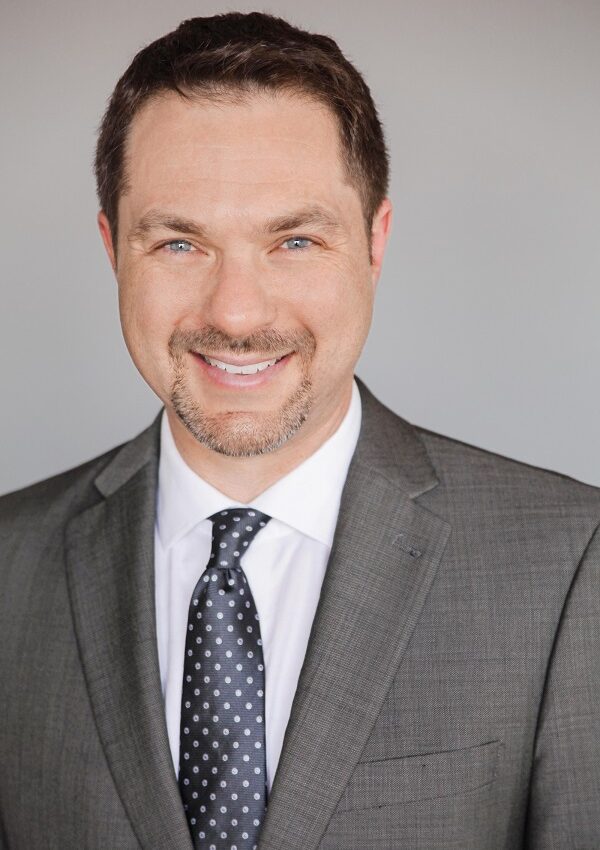THE COURT: Mr. Rosenthal?
MR. DISTRICT ATTORNEY: No, it was Mr. Labrentz. And I asked him, he was the one who, well, I spoke to him regarding the motion to suppress and asked him which officers, what was the basis for the motion so I could determine what officers to subpoena, and he said he would check and get back to me. And then when he got back to me he said, I can’t provide you any specifics. I asked him specifically was this reasonable suspicion for the stop or probable cause for the arrest? And he says, well, I can’t really get into that. You just have to subpoena who you have to subpoena. So the People have made every effort to bring to court the necessary witnesses.
In fact we had a sergeant with years of experience and a detective with years of experience who came to testify, and in good faith believed that they had the amount of the information necessary to satisfy what was required to satisfy this motion; however, based upon the fact that clearly there were elements of the Ingersoll criteria that these witnesses were not the best witnesses to testify to. In fact they said, well, if you want to know that you should talk to the guy who set up the checkpoint, which was Detective Curry. Detective Curry could have been subpoenaed; in fact, he can be subpoenaed back to this court to supply the information. I think to the extent that the Court is on a truth finding mission, that would be the best course of action as opposed to motion by ambush and the fact that we are well within the period, and I think then the Court could actually make an accurate ruling on whether this checkpoint satisfied the criteria.
As it is right now, I believe the officers were in fact able to satisfy enough of the eight criteria as far as the balancing test is concerned. If you look at Ingersoll, the foundational case on this -.
THE COURT: Let’s just stop right there at that point for a moment. So you are telling me you called Mr. Labrentz who was counsel who appeared on this case before, and you spoke to him yesterday?
MR. DISTRICT ATTORNEY: I spoke to him two or three days ago. It might have been a week ago in fact. I think it was probably a week ago.
THE COURT: A couple of days before the hearing?
MR. DISTRICT ATTORNEY: I called within a couple of days of receiving the motion, in fact, because I wanted to be clear on who the People needed to call.
THE COURT: And he said he had to get back to you, but then he did get back to you and basically said he couldn’t discuss that with you, you would have to subpoena whoever you thought you had to subpoena?
MR. DISTRICT ATTORNEY: He said he wasn’t sure, he said he had spoken to Mr. Rosenfeld. Mr. Rosenfeld was in trial. Based on that he wasn’t able to give me any further guidance on that issue. I am aware of any -.
THE COURT: I have reviewed the Williams case and reading from the Williams case, it is a section, “38.5 by its terms authorizes a motion to suppress if, Quote, the search or seizure without a warrant was unreasonable, end Quote, italicized. Quote, “The clear implication of the subsection is that the evidence need not be suppressed, if the seizure was reasonable. To state the implication positively: A warrantless seizure of evidence may be valid if reasonable cause for the seizure exists,” end Quote. Paren, People versus Cirley, C-i-r-l-e-y, 70, Cal. App. 3d, 732 at 746. “Therefore A defendant must do more than merely assert that a search or seizure was without a warrant. The search or seizure must also be unreasonable, that is, it must not fall within any exception to the warrant requirement. To address properly both concepts included in Section 38.5, a defendant has the burden of (1) asserting the search or seizure was without a warrant, and (2) explain why it was unreasonable under the circumstances. “New paragraph.” In this regard Section 38.5 is consistent with generally-applicable and long-standing rules of motion practice. A motion is an application to the court for an order,” and they cite Code of Civil Procedure, Section 03. “In general the moving party must carry the initial burden of informing its opponent and the court of the specific basis for its motion.” California Rules of Court, Rule 3 A and B.”If the rule were otherwise, then the party opposing the motion would have to try to guess and refute every possible basis for the motion which would always be in effect and would often produce arbitrary results. Similarly, when defendants move to suppress evidence under Section 38.5, they must inform prosecution and the Court of the specific is basis for the motion.”
And we started this motion at some point this morning when there was discussion regarding, and I referred to the motion as boilerplate which basically didn’t delineate much other than boilerplate in my opinion. Mr. District Attorney, are you making any type of request based on what you have stated at this point or are you just proceeding with argument?
MR. DISTRICT ATTORNEY: No, your Honor, People would make a request for a continuance of argument as well as presentation of evidence on this motion to suppress to the next court date which I believe is November th.
THE COURT: The last day in this case is currently 28th November. This is pretrial date. I don’t have a November th date yet set with a time waiver. There is another motion that was filed by Mr. Rosenfeld on behalf of his client which is set a motion, Pitchess motion and Brady motion for November th, but that hasn’t been set, that is the date he has requested. Am I correct on the dates, Mr. Rosenfeld?
MR. ROSENFELD: It is my understanding that that date was agreed upon between my associate, Mr. Labrentz and the People.
THE COURT: We have to take a time waiver to that date because we are zero of ten today with a last day of November th.
MR. ROSENFELD: That is fine.
THE COURT: With respect to Mr. District Attorney’s request for continuance?
MR. ROSENFELD: I would object to the continuance. No good cause exists for the continuance. The People had an obligation to investigate and prosecute the case completely. The District Attorney’s Office did contact my office on October 2nd, my associate did contact me and I informed my associate to relay the message that we are not in the business of telling the prosecution how to handle their case and who to subpoena and how to prove their case, we would be unable to help them in that. Before we started the motion today we discussed it, we limited the scope to the justification for the stop and I specifically stated on the record that this is a checkpoint. If I were to go into my motion and lay out the Ingersoll arguments and say please provide all the evidence to prove that this checkpoint was lawful, I would be doing the District Attorneys’ job for them. My job is to protect my client and to zealously advocate on his behalf. I believe that my moving papers are sufficient to provide notice of everything that is required by the law. If the People were unhappy or unsatisfied with what they were able to decipher from my moving papers, they had an opportunity to file an opposition; they chose not to do that. There is no opposition to the motion.
THE COURT: That’s correct, there is no written opposition.
MR. ROSENFELD: And they did not request any further briefing or information from my office after that phone call with Mr. Labrentz. They were prepared to go forward with the motion this morning and they chose to do that. They completed and excused their witnesses. The Court then granted them leave to recall their witnesses, taking up court time. If they wished to continue the matter they should have raised that issue first time the Court gave them a chance to do that and not give them another bite at the apple after I have argued and explained in detail what is required. The defense’s position, no continuances for this motion, no good cause for the continuance of this motion exists and the District Attorney should have filed an opposition and they did not. The evidence is what is before the Court and I am requesting the Court make a ruling. Thank you.
THE COURT: So Mr. Rosenfeld, you feel it would be inappropriate to indicate in your boilerplate motion that this was a motion to suppress and you are challenging the checkpoint, period?
MR. ROSENFELD: No, your Honor. I think that my moving papers are sufficient and complied with the Williams requirements, but to put the District Attorney on notice what is being contested. I stated in the moving papers it was the stop, the detention, any prolonged detention and the arrest. That is sufficient to put them on notice of what is going on. This is A DUI stop, it is a checkpoint case, it is completely reasonable and foreseeable when the defense attorney announces that he is contesting the stop, he is contesting the stop. Was I going to come before the court and say he didn’t notice red, watery eyes and the odor of alcohol?
THE COURT: My reading of the motion would have, at least for the Court, I would not have known that this was a checkpoint just reading the motion.
MR. ROSENFELD: Understood. But the District Attorney has two officers, they called my office to figure out who they should subpoena, and they were told subpoena whoever you need to subpoena. They chose two officers, they chose officers that were not the right officers. I mean, I am sorry.
THE COURT: Mr. District Attorney, you were served, as I have described, a boilerplate motion to suppress on October . You had a file with an arrest report, I take it, on this case.
MR. DISTRICT ATTORNEY: Yes.
THE COURT: And that arrest report advised you of the nature of the stop by the contents of the arrest report, correct?
MR. DISTRICT ATTORNEY: Yes.
THE COURT: And you knew at that time that this was a checkpoint case.
MR. DISTRICT ATTORNEY: Yes. I knew that there was a checkpoint involved.
THE COURT: And that the stop involved a checkpoint.
MR. DISTRICT ATTORNEY: Yes. But there is also a lot of other elements to this case, and the motion purports to cover not only reasonable suspicion for the stop, that only came out right before we actually started the motion today. The way the motion reads is that it is trying to suppress every piece of evidence in this case, and it goes to not only reasonable suspicion for the stop, which I asked Mr. Labrentz, is that what you are going for? And he was not able to confirm that for me. But the constitutional and statutory grounds included that the arrest was without probable cause, and that brings in the whole rest of the report which, there are a myriad of issues here upon which A defendant could move to suppress evidence under 38.5, and in the section of the motion where it says theory of Fourth Amendment violation, it actually reads, “The defendant has received some discovery herein, defendant has no way of that knowing the entire body of evidence available to the prosecution and no way of knowing what theory the prosecution may put forth as justification for the warrantless search and seizure; therefore, it is hereby alleged that there is insufficient evidence to establish any exception that the warrant requirement is applicable. “Now, I think saying that it wasn’t enough discovery received for them to specify that it was the checkpoint that was the issue, doesn’t seem accurate to me. And I believe that the language that was reported by the court from Williams specifies that, just the fact that people who are aware of all the facts in the case is not is sufficient, that there needs to be, when there is a specific requirement that is being relied upon such as the knock and announce rule or such as the Ingersoll is sobriety checkpoint rule, California Supreme Court has ruled that that is actually, that must be specified. And it has never been mentioned in either of the pleadings.
THE COURT: They have rules specifically that checkpoint notice needs to be in the notice of a motion to suppress.
MR. DISTRICT ATTORNEY: No, they have said an analogous court-created rule such as a knock and announce rule, must be pled.
THE COURT: At the beginning of this record Mr. Rosenfeld indicated this was regarding the stop. I spoke to you, you stipulated that there was no arrest or search warrant, which then shifts the burdens to the People to establish the legality of the top. After your witness has testified, I allowed those witnesses to come back and re-testify over defense objection. Now Mr. Rosenfeld has articulated what he believes are the deficiencies in the Ingersoll criteria for the checkpoint. So the question becomes in balance based on what I have just stated and the boilerplate notice, should the People be given an opportunity to present additional witnesses for this motion.
MR. DISTRICT ATTORNEY: Well, your Honor, based on the fact that the People made every effort to accomplish and get this motion determined, ruled upon at this court appearance, and towards that end the People made an effort to call the witnesses who were present and provide the information that would satisfy the People’s burden. I don’t believe the People should be punished for making every effort to get this done the day of, given the deficiency in the pleadings to put the People on notice as to which witnesses were required. And as to whether the defense is at some kind of disadvantage because there has already been oral argument as to the law, in fact there should be no disagreement over what the law is. We should all be operating on the same plane with knowledge as to what the factors are. And in this case, now that the People are on notice that in fact this does involve the checkpoint, it is not as if the People are going to go and find witnesses who are going to provide false testimony to satisfy the constitutional requirements. In fact the People will simply provide the witness who will testify as to what is within his personal knowledge when he set up the checkpoint. It doesn’t change the Court’s truth finding function to have a witness who is actually knowledgeable as opposed to the Court making a ruling based on insufficiency of evidence because the wrong witnesses were subpoenaed. I don’t believe the defense is at any disadvantage because it is not as if the witnesses are going to all of a sudden falsely testify. The facts are the witnesses, and the witnesses who could supply those facts should be the ones in court when the court is deciding the motion.
THE COURT: Do you have anything further you wish to add, Mr. Rosenfeld?
MR. ROSENFELD: Only if the Court inquires.
THE COURT: What is troubling to me is that Mr. District Attorney made a phone call to I guess other counsel in your office, that works in your office, and tried to get some specifics as to who he would be needing as a witness, and for whatever reason not placing in the motion, the words challenging checkpoint without telling him which of the specific enumerated items in the checkpoint you were concerned about, would have provided information for them at least to be on notice, if, either you bring in all the witnesses to make all the points, but it is up to you.
MR. ROSENFELD: May I be heard? Thank you, your Honor. On that point, the People inquired of my office, and I directed my office to respond that they need to call whatever witnesses they need to call. I am not going to tell them how to prosecute their case. The People in this case were served with an informal discovery request asking for all writing, this was back on or about September , and I asked for any and all writings or recordings regarding this case. The People never provided me, my office with any checkpoint package, so I too come to court without the information that was timely requested.
THE COURT: I am going to continue this; you have made your record, Mr. Rosenfeld. It looks like the two of you had agreed, and I take it you served this Pitchess motion for a specific date.
MR. ROSENFELD: Yes, your Honor.
THE COURT: So you want to make November then zero of ten and continuation of the 28 on November ?
MR. DISTRICT ATTORNEY: Your Honor, the People were never consulted about a date for the Pitchess motion.
THE COURT: When we were last in court, Mr. District Attorney, there was a discussion with counsel, he wanted me to directly set this on the, I believe he originally wanted the, which was the last day in this case, and I told him I couldn’t accommodate that because that was the 45th day, that we would have to go one day beyond 45th day in order to do that, and that is how that date came about in his mind.
MR. DISTRICT ATTORNEY: I see.
THE COURT: Because I would not put it on the 45th day which is the th. So in the last court appearance my notes, my handwriting that you were present, but you may not recall that. So are you authorized and do you to waive time, Mr. Rosenfeld on behalf of your client to November, as zero of ten days for trial setting?
MR. ROSENFELD: Yes, your Honor.
THE COURT: I order a transcript for the Court and both counsel of today’s proceedings, is I ask the reporter if she can, can you have that in this courtroom by the 7th or 8th?
THE REPORTER: Yes.
THE COURT: Order a transcript for both counsel and original for the court. Time is waived to the. Are we proceeding on the th or some other day within that day period with 28? Are you available and will be ready to go with additional witnesses on that day? I have also got the Pitchess motion. If the Pitchess motion is granted I am going to have to do an in camera. I haven’t read it because there was no response yet.
MR. ROSENFELD: Your Honor, the defense doesn’t anticipate calling any witnesses at this time.
THE COURT: Right. But I guess what I am asking you, are you going to be available to continue with this motion and testimony on the, do you want the witnesses subpoenaed for that date for the 28? That is what I am asking.
MR. ROSENFELD: I will be available on the.
THE COURT: So we will do the balance of the 28.
Mr. District Attorney, you will subpoena whatever witnesses and documentation that you feel is appropriate for this, and if there is any documentation that you are going to offer, I am going to order you to disclose that information to counsel.
MR. DISTRICT ATTORNEY: Understood.
THE COURT: Before the hearing, so that there is no reason that that could not be disclosed by the 5th of November.
MR. DISTRICT ATTORNEY: As soon as I receive it I will is e-mail it over.
THE COURT: Is there anything further at this point?
MR. ROSENFELD: Nothing further from the defense. Thank you, your Honor.
THE COURT: Mr. District Attorney?
MR. DISTRICT ATTORNEY: Nothing further. Thank you.
THE COURT: All right, thank you.
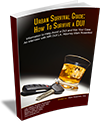

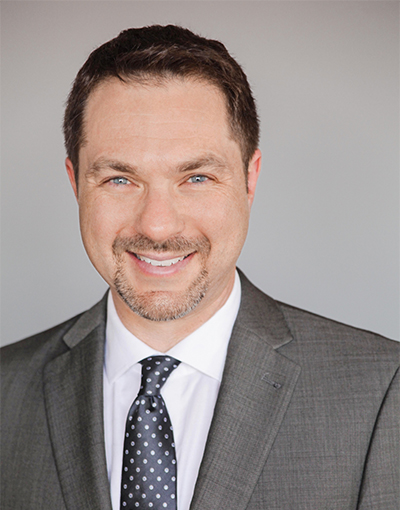
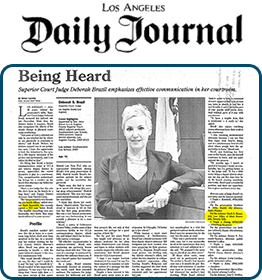
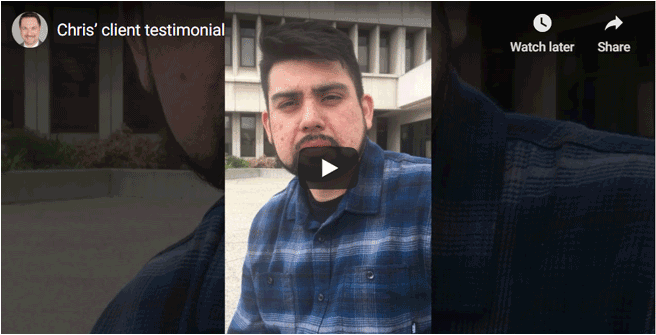

 Personal Attention
Personal Attention Every criminal case is unique and no attorney can guarantee the outcome of a case. The information on this site is legal advertising and for general information only. Using this site, requesting books, information, consultations or communicating with Attorney Rosenfeld through its site does not form an attorney/client relationship.
Every criminal case is unique and no attorney can guarantee the outcome of a case. The information on this site is legal advertising and for general information only. Using this site, requesting books, information, consultations or communicating with Attorney Rosenfeld through its site does not form an attorney/client relationship.
